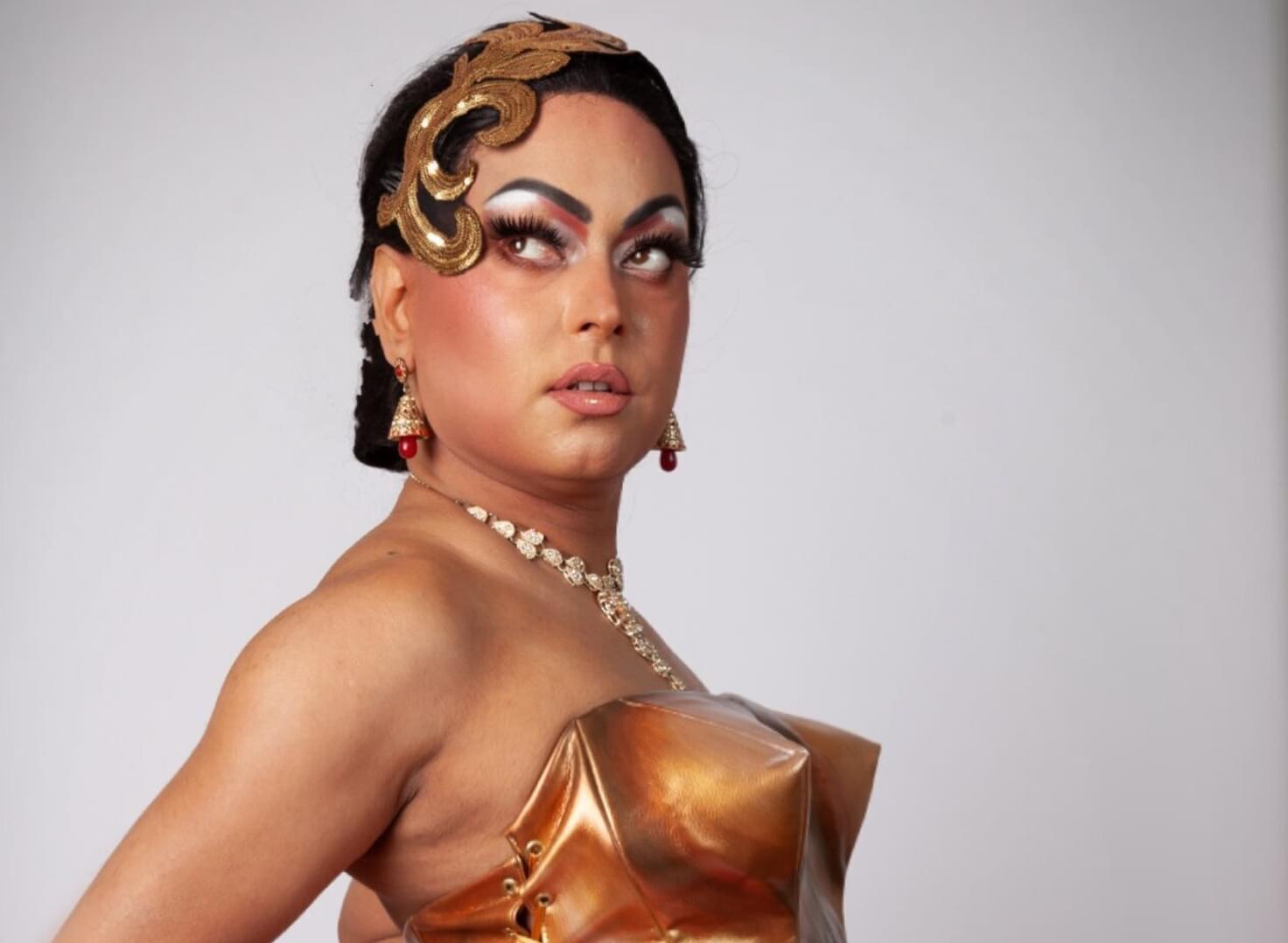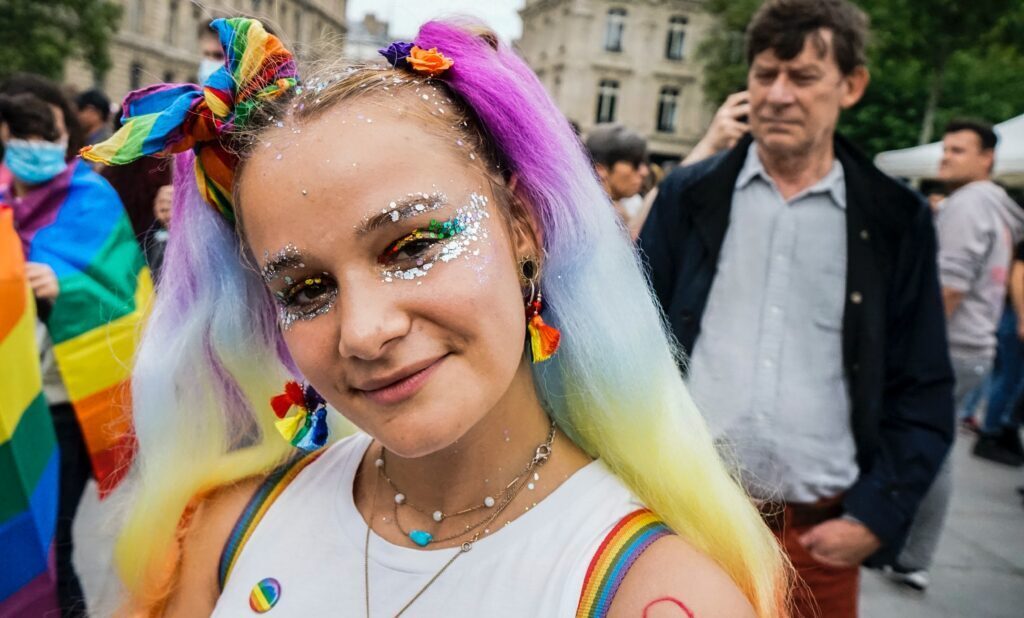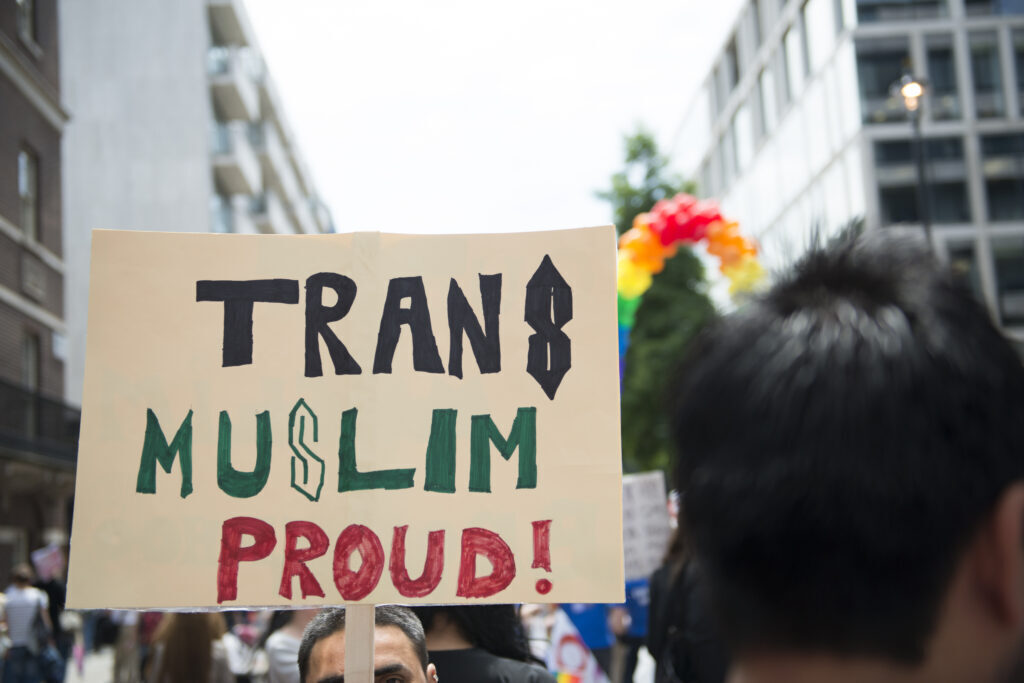
Words by Abi Scaife
It may be difficult for some to imagine that faith and the LGBTQ+ community go hand in hand - but there are many people setting out to challenge that perception.
At the ‘Pride and Prejudice?’ talk, at St John’s church in Waterloo, several members of the faith and LGBTQ+ communities gathered to discuss the intersection of faith and sexuality and gender. Rather than a debate of two communities against each other, this was a conversation led by people who straddle both communities, or strong allies of both.
“There's so much more to us - there are many [LGBTQ+ people] that are part of the faith community; Christians, Jews, Muslims, Hindus, you name it,” says Asifa Lahore, one of the Pride and Prejudice? Panelists, who spoke to Smiley News ahead of the panel. “What's happened in the last 30 years, especially with the rise of social media … Is that a lot of diversity within the queer community and faith community has really been highlighted. Kudos to events like ‘Pride and Prejudice?’ that are putting the spotlight on on different identities and diversity and inclusion.”

Asifa Lahore is widely known as Britain’s First Out Muslim Drag Queen - a title she was given when she first began performing. During the ‘Pride and Prejudice?’ panel, Asifa was able to give the perspective of someone who grew up Muslim, realised she was a part of the LGBTQ+ community, and found that her faith was as much a part of her as her queer identity.
Today, that experience is something that draws people to her - and has shown her that more needs to be done to help those who exist at the intersection of religion and the LGBTQ+ community.
“After all my shows, I would get approached by a lot of queer Muslims [and] a lot of queer South Asians, either face to face or online,” explains Asifa. “I realised that there was this community that was just underneath the radar, very much hidden in the shadows - and it was a community that I was part of.
“I realised that the reason why I was given the title [Britain’s First Out Muslim Drag Queen’ when I became both an activist and a role model was because I was one of the first people to really put my head above the parapet.”

Today, Asifa continues to be a role model for queer South Asians and queer people of faith from all over, encouraging them to find a community, and to embrace all the parts of their identity in their whole, instead of shutting one or the other out.
“I grew up with the notion that you had to pick one or the other. Growing up with that … there'd be parts of the year where I would fully focus on my queer identity and then parts of the year where I would totally block out my queer identity and focus on my faith identity. And this compartmentalization of identities … leads to really poor mental health. It leads to ‘where do I belong? Who am I?’,” explains Asifa.
“What I want to say to anyone out there from a faith community who identifies as queer is that you don't have to choose one over the other. Actually, you can take the best of both worlds and do what works for you as an individual.”
Charity check-in
At Smiley Movement, we like to elevate the work of charities across the world. Here are three charities whose causes align with the themes in this article.
MindOut. An award winning LGBTQ community mental health service based in Brighton; run by LGBTQ people, for LGBTQ people. Learn more here.
Switchboard. They provide an information, support and referral service for lesbians, gay men and bisexual and trans people – and anyone considering issues around their sexuality and/or gender identity. Support them here.
LGBT Hero. LGBT HERO is the national health and wellbeing charity for LGBTQ+ people supporting over 100,000 people a month. Find out more here.